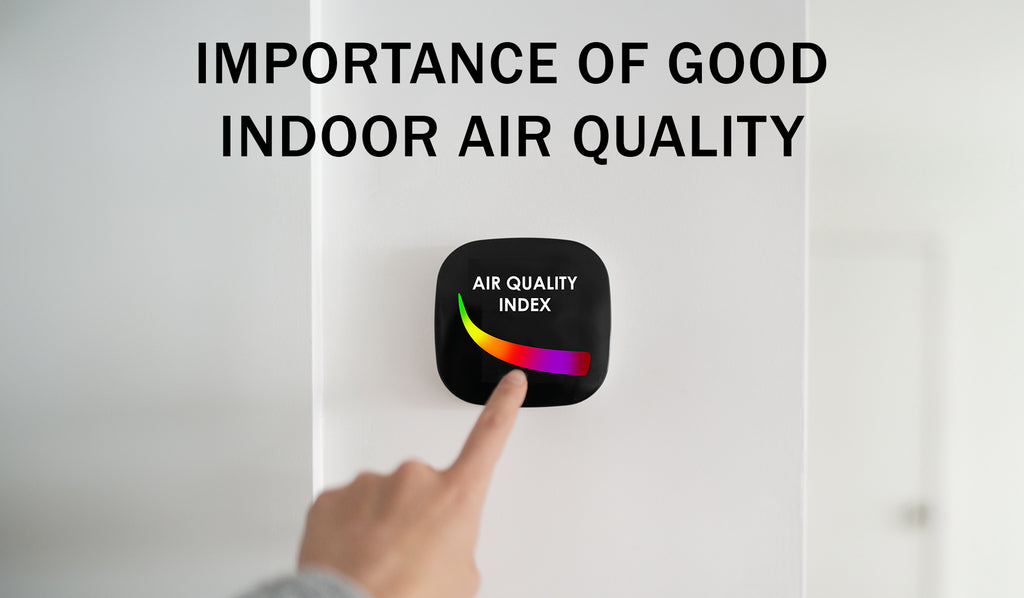No Products in the Cart

We think air pollution is a risk we only face outside when we are outside, but the air we breathe indoors can also be polluted by different contaminants that could lead to respiratory illnesses and other health issues. That’s why maintaining a good Indoor Air Quality (IAQ) is essential as we spend almost 90% of the time inside whether at home, work or at school.
The term Indoor Air Quality (IAQ) is the state of air inside a building and how it impacts the comfort and health of the occupants. IAQ is affected by a number of variables such as humidity, temperature, ventilation, and pollutants like mold, dust, pet dander and volatile organic compound (VOC).
Health Benefits: Reduces the risk of respiratory illness like allergy and asthma by removing indoor pollutants
Improves Productivity: Clean air improves your mental and physical performance by enhancing your mood and mental sharpness.
Improved Sleep Quality: Stale air and pollutants affects our sleep patterns by causing congestions and discomfort. By keeping your indoor air clean especially in the bedroom will improve the quality of your rest.
Comfort: High humidity and stagnant air can make indoor environments uncomfortable. Proper ventilation, air circulation and filtration will create a pleasant indoor space.

Air conditioners are commonly associated with cooling, but they also enhance the Indoor Air Quality of a space. A well maintained air conditioning system can help filter pollutants, regulate humidity and provide cleaner and healthier indoor air.
Modern air conditioners are equipped with filters to trap airborne particles such as dust, pollen, pet dander, and mold spores. High-efficiency filters, such as HEPA filters, can capture even finer particles, improving the air quality of individuals with allergies or respiratory issues. By continuously filtering the air, AC systems help reduce the presence of these pollutants, providing cleaner air for occupants.
High indoor humidity levels can lead to the growth of mold, mildew, and dust mites, which can exacerbate respiratory issues and trigger allergies. Air conditioners help control indoor humidity by removing excess moisture from the air, preventing the growth of these harmful pollutants. Maintaining a humidity level between 30% and 50% is ideal for comfort and good air quality.
While air conditioners cool the air, they also support proper ventilation by circulating fresh air. Central air conditioning systems often include an outdoor air intake, allowing fresh air to mix with recirculated air. This process helps dilute indoor air pollutants, ensuring a more constant supply of clean air.
In addition to filtering out pollutants, air conditioners can help reduce indoor odors caused by cooking, cleaning chemicals, or pets. By circulating and refreshing the air, AC systems help eliminate stale or unpleasant smells, contributing to a more pleasant indoor environment.
Good indoor air quality is essential for a healthy, comfortable, and productive lifestyle. Prioritizing IAQ is not just a matter of comfort, but a vital step toward ensuring long-term health and well-being. For more information on how Totaline can help you improve your indoor air quality, explore our product offerings or contact our team of experts today.